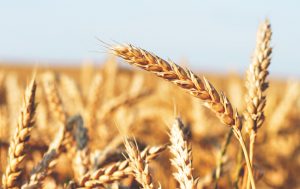A while back I read the book The Wizard and the Prophet. No, it is not a Harry Potter book. It was written by Charles Mann and published in 2018. The wizard in this case is renowned plant scientist Norman Borlaug and the prophet is William Vogt. Vogt, born in 1902, founded “apocalyptic environmentalism” and spent his life warning that humankind must reduce consumption or the Earth’s ecosystems would be overwhelmed.
Sound familiar? It’s a theme we constantly hear these days. But Vogt was preaching it when Earth’s population was about 2.5 billion vs. nearly 7.8 billion now. Vogt’s, solution was to eat less meat so that more farmland could be devoted to food crops. Today’s solution by environmentalists is no different.
In 1948, Vogt published the first modern “we’re-all-going-to-hell” book, The Road to Survival. Mann says, “It was a vision, a moral testament on how we should live. The principal tenants of modern environmentalism.”
Two more books in this style, The Population Bomb by Paul Ehrlich (1968) and The Limits to Growth (1972, a compendium commissioned by the Club of Rome), “scared the hell out of me,” says Mann, then a college student. He became a Vogtian. Ehrlich claimed “the battle to feed all of humanity is over.” He warned life expectancy in the U.S. would fall to 42 years by 1980 because of agricultural pesticides. The Limits to Growth authors predicted limits would be reached sometime in the next 100 years unless humankind’s consumption habits were changed (stop chasing affluence and eating “high off the hog,” he urged).
But by the 1980s, the wizardry of Borlaug had made Mexico, Pakistan, and India self-sufficient in wheat, even exporters in some years. Other wizards had turned Asian rice importers to exporters. A billion extra people were being fed. World hunger was not eliminated, but it was being reduced. Mann saw that the prophets had been wrong and became a Borlaugian.
But Mann wrote his book because he has started to “waffle a bit” in his worldview. Perhaps the Limits to Growth has some credence. He invites the reader to look at the “four great oncoming challenges — food, water, energy, and climate change — through the eyes of Vogt and Borlaug.” He does an excellent job, I think, of examining these issues from both sides.
In the end, he still puts his faith in the wizards.
Since 1950 the world’s population has tripled, life expectancy (world) has risen from 45.5 years in 1950 to 72.8 years in 2021. Because of the wizardry of Borlaug and those like him, each acre of farmland in the world now produces approximately three times as much food as it did in 1950. With innovations that keep coming and with improvements in farming methods now beginning to take hold in Africa and other subsistence farming areas, we are well on the way to providing abundant and safe food for the expected world population of 10 billion by 2050 — without adding huge amounts of new farmland from the world’s forests and savannas.
But in the mid-1940s, none of this future was self-evident. Borlaug’s mission, given to him by the Rockefeller Foundation, was to find new varieties of wheat for Mexico’s farmers that could resist the devastating rust outbreaks that impoverished them. This farm boy from Iowa, who had only aspired to be a high school science teacher and athletic coach, had arrived in a foreign country with this important assignment, equipped with little more than grit, determination, and empathy for the poor farmers of Mexico.
It was a fortuitous stroke of luck for the millions, some say a billion, of people his varieties would lift out of poverty and starvation. He was not even an agronomist. His doctorate was in forest plant pathology. Lucky for the world, his training had included some wheat breeding.

So far as is known, Vogt and Borlaug only met once, but they spent the rest of their lives arguing against the other’s worldview every chance they could, without mentioning the other’s name. Vogt spent most of a day in 1946 visiting with Borlaug at his (then) run-down experiment station near Mexico City, in his (Vogt’s) official capacity as head of the Conservation Division of the Pan American Union. Mann describes this encounter, and comments, “Vogt and Borlaug have the same mission: to use discoveries of modern science to spare Mexico from a future of poverty and environmental degradation. … Not much later, both men will realize that the challenges they see before Mexico actually confront all of humankind.”
Vogt, he continues, sees modern agricultural methods as an environmental disaster that must be held back. Borlaug sees the pitiful crops the farmers are growing and how the land can be made to produce more.
A few months later, Vogt tries to get Borlaug’s project shut down by writing a long letter to the Rockefeller Foundation, arguing that increasing agricultural production is not the answer, it will only cause more degeneration of nature. Nature must be preserved to save humanity. Thus began a long argument that “continues to the present day.”
Jack DeWitt is a farmer-agronomist with farming experience that spans the decades since the end of horse farming to the age of GPS and precision farming. He recounts all and predicts how we can have a future world with abundant food in his book “World Food Unlimited.” A version of this article was republished from Agri-Times Northwest with permission.



